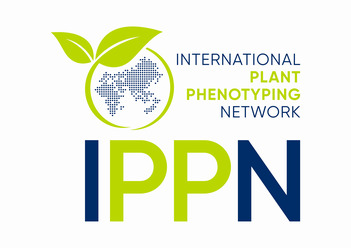-
Phenotyping for crop improvement & abiotic stress resistance
-
Phenotyping for climate change adaptation
-
Phenotyping for biotic stresses, plant diseases and disease resistance
-
Phenotyping of plant-microbiome interactions
-
In controlled & field environments
-
This session is reserved for industry speakers, showcasing new, innovative developments for Phenomics research
-
Especially welcome are innovative talks from start-ups
-
Cutting edge hard- & software developments providing new & exciting research possibilities for plant scientists
-
No marketing talks! Let data speak for itself
-
Carbon- & source-sink-dynamics
-
Root/shoot phenotyping
-
Seed & plant organ development
-
Carbon storage & capture
-
Emerging issues using AI
-
Phenotyping supported modeling / process-based modeling
-
New developments in data analyses for phenotyping data
-
Statistical modeling & methods
-
FAIR data / Metadata / Databases / anthologies / standards / harmonization
-
Preferably by African research teams and teams including African researchers using plant phenotyping techniques
-
Research done on crops used in Africa and/or…
-
…in African environments & answering to African challenges
-
Phenomic characterization of Germplasm: requirements & challenges
-
Protocols & Technologies for Genebanks: Harmonization vs. Individual Approaches to Phenomics in Genebanks
-
Phenomics for Faster Identification of Climate Resilient Crops
-
Predictive Breeding: Utilizing Phenomics data for predictive modeling
-
Phenotyping crops for non-food purposes (ornamentals, forests, feed, fibers)
-
Special applications of plant phenotyping methods to answer basic research questions in plant sciences outside any “traditional” applications
-
Specialty crops & Horti-/Sylviculture
8th International Plant Phenotyping Symposium
Scientific sessions and topics:
[Please note, that the full list of keynote speakers is currently in the making & will be updated continuously]
1) Phenotyping of biotic & abiotic stress responses
Keynote: Dr. Kaitlin Gold
(Cornell University, United States of America)
Dr. Gold completed her PhD in Plant Pathology and MS in Applied Statistics concurrently at the University of Wisconsin–Madison in 2019, where her dissertation research pioneered the use of in-situ and imaging spectroscopy for pre-symptomatic disease and diagnosis. Prior to starting her tenure-track position at Cornell, she held a visiting faculty fellowship at the NASA Jet Propulsion Laboratory in Pasadena, CA with the Carbon and Ecosystem Cycling and Imaging Spectroscopy Groups to use AVIRIS-NG hyperspectral imagery for asymptomatic grape disease detection and mapping.
Dr. Gold’s Grape Sensing, Pathology, and Extension Lab at Cornell (GrapeSPEC) studies the fundamental and applied science of plant disease and plant-microbe interaction sensing to improve integrated grape disease management. The Gold Lab specializes in the use of in situ and imaging spectroscopy (also known as hyperspectral imaging) deployed at a range of spatial scales, from proximal, autonomous rovers to spacecraft, to characterize asymptomatic disease physiology and the impacts of management intervention on early grape disease detection.
Session topics include:
2) Technology/Industry Session: From State-of-the-art towards the future
Keynote: Bonnie Brayton
( Fulcrum Global Capital, United States of America)
As Senior Venture Associate at Fulcrum Global Capital, Bonnie invests in agricultural technologies that improve global food production, reduce waste and increase sustainability. FGC is an early-stage AgTech investment fund and is known as the venture capital arm of the US agricultural producer, with over 70% of its fund coming from elite producers. Bonnie brings over 15 years of experience in the plant sciences and biotech to the FGC team. Prior to joining FGC in 2022, Bonnie worked at Corteva Agriscience for almost a decade. She joined DuPont Pioneer as a researcher at the Hawaii Doubled Haploid Production facility, where her team focused on novel breeding technologies for corn and sunflower. Eventually, Bonnie moved out of the lab and into Corteva’s R&D Operations. As an R&D Operational Excellence Leader, Bonnie spearheaded continuous improvement programs, as well as change management and strategy campaigns. From there, Bonnie transitioned to an R&D Technology Acquisition & Alliance Manager. In that role, she formed and managed external collaborations for a variety of R&D teams, including Biologicals, Predictive-Risk/Regulatory, Seed Applied Technologies, and Small Molecule/Natural Products. She also scouted commercial and pre-commercial products for Corteva’s Biologicals Portfolio. Before her career at Corteva, Bonnie was a staff scientist at the University of Hawaii’s John A. Burns School of Medicine and Hawaii Center for AIDS in an Immuno-Genetics group. She also worked as a metabolomics researcher at Mendel Biotechnology in Hayward, California. Bonnie is a graduate of Scripps College (BA in Biology & Chemistry), University of California Berkeley (MS in Plant Biology, plant-pathogen interactions) and Brown University (MS in Technology Leadership). She is a Farm Foundation Round Table Fellow and a certified Lean Six Sigma Green Belt.
Session topics include:
3) Phenotyping of allocation & source-sink dynamics in woody- & herbaceous plants

Keynote: Hendrik Poorter
(Wageningen University, The Netherlands)
Hendrik Poorter is an ecophysiologist currently employed at the Horticultural Department of Wageningen University. His work focuses on:
1. How (specific groups of) plants acclimate to 12 important a-biotic factors. This involves establishing generalized dose-response curves through meta-analysis of a substantial number of experiments, covering ca. 100 plant traits (see here for around 250 dose-response curves).
2. How to set up experiments under controlled conditions, how to grow plants under these conditions, and how to apply a-biotic stress to plants in ways that yield meaningful insights about what plants experience outside in the field.
3. How do allocation, organ morphology and plant physiology co-determine variation in growth rate among and within plant species.
Session topics include:
4) Next level AI, Models & Algorithms for Phenomics
Keynote: Dr. Baskar Ganapathysubramanian
(Iowa State University, United States of America)
Baskar Ganapathysubramanian is a Professor in the Department of Mechanical Engineering at Iowa State University. His research interests are in the areas of computational mechanics, physics and scientific computing. His lab leverages advances in applied mathematics and high-performance computing to model, design and control real-world physical phenomena. From the application point-of-view, his lab is particularly interested in energy and environment-related phenomena. They develop mathematical techniques and computational tools — model reduction, multi-scale frameworks, multi-physics simulators, control algorithms, data-driven methods to efficiently model these systems. Whenever possible, they validate the techniques using the expertise of their experimental collaborators. Dr. Ganapathysubramanian's projects focuses on high-throughput algorithms for image processing, data dimensionality reduction, as well as mechanistic models of plant growth.
Session topics include:
5) Advancing Crop Phenotyping in Africa: Exploring Perspectives
Keynote: Michel Ghanem
(CIRAD, France)
Dr. Ghanem is a Researcher at CIRAD (UMR AGAP Institut), Montpellier, France. Former Professor of Plant Physiology at Mohammed VI Polytechnic University (UM6P), Morocco. Before that, he was the Program Leader for Genetic Resources at the Pacific Community (SPC) in Suva (Fiji). Former Deputy Director for Research and innovation at ITK (France). Dr. Ghanem also served at the International Center for Agricultural Research in the Dry Areas (ICARDA) as Crop Physiologist, where he founded and lead the Crop Physiology laboratory. He holds an Agronomy Engineering degree and a Ph.D. in Plant Biology from the University of Louvain (UCLouvain, Belgium) and an Accreditation to Supervise Research (HDR) from the University of Montpellier, France. Dr. Ghanem served also an Invited Professor of Plant Physiology at the University of Namur (Belgium). He also worked as a Research Fellow at the CEBAS-CSIC (Murcia, Spain) where he was actively involved the conception and the coordination of a EU-funded FP7 project in the field of root-science research (Rootopower). Dr. Ghanem is also expert at the Biosafety Advisory Council (BAC) of Belgium on transgenic plants and serves on the Executive Board of the Experts Working Group on Wheat phenotyping within the Wheat Initiative. His research expertise covers plant abiotic stress physiology, plant modeling, root biotechnology, and plant phenotyping. Within the CGIAR Research Program (CRP) on Grain Legumes, Dr. Ghanem served on board of the Research Management Committee as coordinator of the work on “Heat tolerant chickpea, common bean, faba bean and lentil”.
Session topics include:
6) Phenomics for Genebanks: Leveraging diversity towards new phenotypes
Keynote: Dr. Peter Wenzl
(Alliance of Bioversity Intl. & CIAT, Colombia)
Peter manages the Future Seeds genebank in Colombia which conserves global collections of beans, cassava and tropical forages. He joined the Alliance in 2016 coming from the Global Crop Diversity Trust where he contributed to coordinating the DivSeek initiative to harness crop diversity using genomics.
He had previously led the Seeds of Discovery project at CIMMYT to systematically identify and mobilize useful genetic variation from the global maize and wheat collections using a combination of genotyping, phenotyping and pre-breeding.
With a PhD in plant physiology & genetics from the University of Vienna, he has moved across a variety of research areas, both in the public and private sector, to develop new approaches and tools to better conserve and use plant genetic resources.
Session topics include:
7) Emerging Frontiers & Special applications in Plant Phenotyping
Keynote: Dr. Theo van der Lee
(Wageningen University & Research, The Netherlands)
Theo van der Lee Senior researcher at Wageningen University and Research, department of bio-interactions and plant health. Published over 100 articles in peer reviewed journals in the field of molecular biology, genetics, plant resistance, plant pathology and digital phenotyping with over 27,000 citations (google scholar). The research topics include resistance of plants to plant pathogens (<30 years). I have been involved in map based cloning of plant resistance genes (Mlo, I2), population studies on plant pathogens, population genomics and pangenomics including functional annotation, detection, identification and quantification of plant pathogens, genetic mapping and functional genomics in plants and plant pathogens, I have been working on digital phenotyping for >20 years using non-invasive fluorescent imaging techniques to monitor the infection process and quantify plant resistance components. My main interests are: plant pathogen interactions (susceptibility and resistance) and understanding the drivers of genetic selection in plant pathogens populations. Improving technologies to obtain durable resistance for agricultural practice.
Session topics include:









